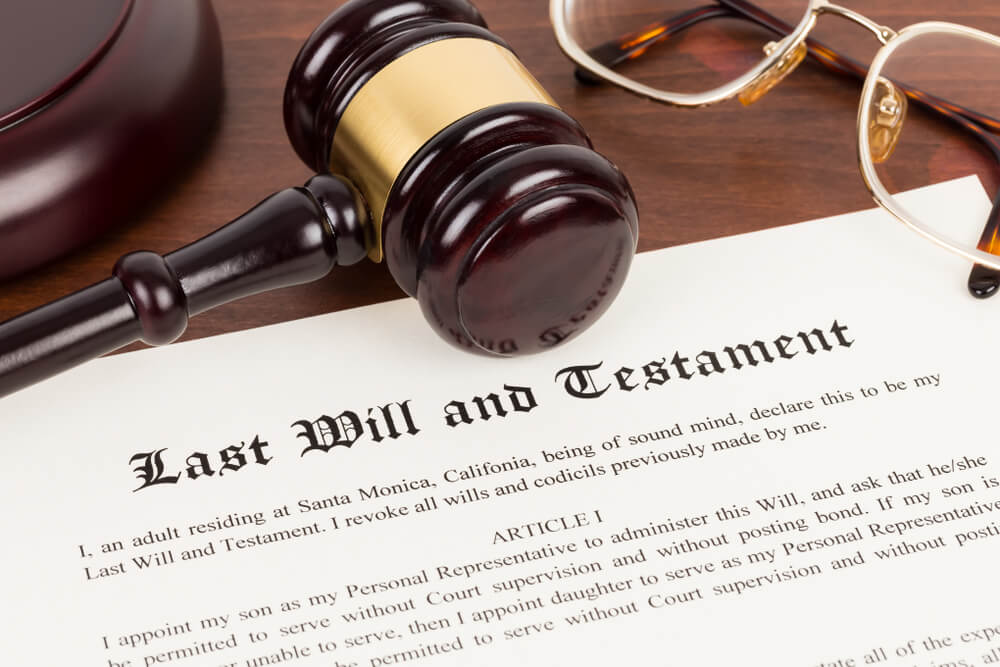Most people want to avoid probate court and look for legal strategies that will allow them to pass their money and property from one generation to the next without going to probate court. But, is there ever a time when probate court is the best option?
What exactly is probate court?
Probate court is a court-supervised process for distributing a deceased person’s money and property to their heirs. Since it is a court-supervised process, it has inherent costs and takes time.
What are the advantages and disadvantages of probate court?
The disadvantages of probate court
- Court supervision means that the probate process will occur based on the court’s schedule, and therefore it is often drawn out.
- There are inherent court costs associated with the probate court. Depending on the number of parties and whether there is controversy involved, the cost can become quite expensive.
- Court supervision makes the process of distributing money and property a public proceeding.
The advantages of probate court
- Court supervision can be beneficial when there are concerns about whether a Last Will and Testament will be executed following a deceased person’s wishes.
- Court supervision may be needed if there is an increased likelihood of family disputes.
- Court supervision may be needed if there is a concern that the estate may not be able to pay the decedent’s debts.
Probate Court to Ensure the Proper Execution of a Last Will and Testament
Suppose you are concerned that your executor may not or cannot execute your Last Will and Testament according to your wishes, or you have difficulty identifying people who you believe will honor your wishes. In that case, probate court may be your best option.
As long as what you request is allowed under state law, you may want probate court to oversee the process of executing your will. That way, you can ensure that your last wishes are carried out according to your documented will, and your property will be managed and distributed as you intended.
Probate Court to Settle Family Disputes
What if you are concerned that your legal heirs, people entitled to your money and property at your death, will be engaged in disputes and conflicts over managing and distributing your property as you intended? When conflicts are anticipated, sometimes having your will executed in a public setting is a good thing. As much as we all like to maintain our privacy, the public nature of the probate proceedings may promote accountability among your heirs. If a judge is overseeing the probate process, heirs who may have acted unscrupulously or unfairly in a private setting may be restrained in a more public forum.
Besides the more public nature of probate court, many people associate the court with a sense of reverence. Even if your heirs are dissatisfied with their inheritance, in a public setting, they may be less likely to contest the decisions. There is also a finality associated with the judicial process that may make your heirs more accepting of the outcome. In a case where family disputes are expected, the court’s objectivity may be an ideal setting that minimizes family drama.
Probate Court When There are Concerns about Insolvency
When a person dies, their estate is expected to pay all their bills and debts. This can be a challenge if the bills and debts are large and the estate is relatively small. Insolvency means that a person does not have enough money to pay their bills or debts. It can occur when a person is living or after their death.
When an estate cannot pay all a decedent’s bills and debts, the structure of a probate court may be extremely valuable. The probate judge can determine how creditors are paid and how much they receive. Creditors are required to submit to the court’s requirements if they want to be paid.
One court requirement that creditors must follow is to make their requests for payment within a limited time period. If the creditor does not adhere to the court’s timeline, they may be restricted from asking for payment at a later date. In most cases, debts that are not satisfied are lost. Thereby, probate court can facilitate a greater level of loan forgiveness for an estate.
The probate court can also facilitate the process of paying off outstanding taxes the estate might owe. The structured processes probate courts use can settle an estate in a way that prevents future problems.
What should you do?
There are many factors to consider, and each family situation is different.
It is important to know:
- What money and property are at issue
- The nuances of the probate process in your state
- Your overall goals and values when passing on your money, property, and legacy
If you are in the process of planning your estate, please reach out to one of our experienced attorneys. We can help you evaluate your current situation and formulate plans to help you feel confident your estate will be distributed according to your wishes.
You are welcome to schedule a call with us or reach us directly at 855.434.2062 to learn more about how best to plan today to protect those most important to you.








